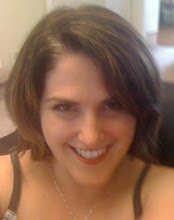Saturday, February 27, 2010
Book 13: The Politician
Thursday, February 25, 2010
Book 12: Extremely Loud and Incredibly Close
Tuesday, February 23, 2010
Random Posting
Monday, February 22, 2010
Book 11: Stolen Innocence
Saturday, February 13, 2010
Book 10: The Help
Book 9: Finding Your Own North Star
Tuesday, February 9, 2010
Book 8: Harry, A History
Harry, A History,by Melissa Anelli
Only minutes after I began listening to Harry, A History, I had to turn it off. As I recently explained on my Facebook page, even I am sometimes surprised at my level of dorkiness, and this was one of those moments. Should any of my friends read this post, I'm ready for whatever geek jokes you throw at me. After this book, I know I'm in good company.
When I started listening to the book, I was driving through Atlanta on I-20 on a Friday afternoon. In other words, not the time to be so distracted by a book, so overwhelmed with the emotions it was bringing back to me, that I couldn't pay attention to the road. I simply had to turn it off for something that required less involvement from me. As soon as I could, though, I tuned back into the audiobook and ordered a hard copy of it for future reference.
Harry, A History, opens with the excitement of the impending announcement of the publication date of the final Harry Potter novel, and all that the announcement meant. I remember hearing the date, and getting my notification from Amazon.com that I could pre-order the book. On the release date, I remember giddily greeting the UPS delivery man halfway down the driveway, just to get my hands on the book that much sooner. I remember I had houseguests the weekend Deathly Hallows came out. As soon as they left on Sunday, I barricaded myself in the house, with no internet, television, or radio distractions, and read. I didn’t want any spoilers, and I read the whole book. I had to finish it in one fell swoop because work beckoned on Monday and I just couldn’t take the chance of learning who lived, who died, and how things resolved from any source other than JK Rowling herself. In a much more eloquent manner, Melissa Anelli recounts her similar emotions at learning the date. As webmistress of the Leaky Cauldron, one of the top rated Harry Potter fansites on the web, Anelli has been privy to the inner workings of the amazing Harry Potter fandom. She shares her experiences, and what the books and fans and JK Rowling herself have meant to Melissa over the years.
This book does precisely what it should for any reader who cares deeply about its subject matter. I’m a self-professed Harry Potter fan (Potterfile? Potterhead?). I’m a lot like Hermione in a lot of ways, but hopefully more like her in Books 4-7 than 1-3. Bossy, nagging little swot, wasn’t she, in those early books? But I digress. Anelli brought back to my mind the excitement I felt when I first discovered the Harry Potter books. She began reading the books when she was in school at Georgetown University. She became friends with one of the "cool kids" who also loved the books. She began volunteering with the Leaky Cauldron fan site (http://www.the-leaky-cauldron.org/) and it wasn't long before her "hobby" began to overtake "real" Life.
I'm only a little embarrassed to admit that at more than one part of this book, I was nearly in tears. Not because anything was that sad, but because it was so close to home, and so fulfilling. Melissa Anelli is passionate about Harry Potter, and she was able to turn this passion into something meaningful in her life. At the same time, she discovered and reported on how a series of BOOKS brought so many people from so many different experiences together.
And to me, that is the best thing about the Harry Potter books. In this era of instant gratification, of the internet and PS3's and Wii's and Twitter and Facebook, etc., etc., etc., it is books that brought together millions of people over ten years. Books! Isn't that amazing? Books!
But back to what I loved about Melissa's account of the Harry Potter phenomenon. I didn't know that the HP fandom is as extensive as it is. I love that Anelli talks about some of the lesser-known sites that fought for the right to discuss the books they loved, and worked with Rowling and Warner Brothers to find a happy medium. I love that Wizard Rock is a legitimate rock genre, which I now know. Special thanks to Draco and the Malfoys, Harry and The Potters, and The Whomping Willows for now having their own playlist on my iPod. Extra Special thanks to Melissa Anelli for letting me know they exist.
I think, mostly, what I loved about the book is that Melissa Anelli got to live her bliss. How many of us can say that? She became passionate about a series of books, and found a cyber community that felt the same. She helped nurture and grow that community. Because she protected the integrity of the series, she earned the respect of her fellow fans, and equally as important, JK Rowling herself. Anelli found a way to turn her passion for writing, and her passion for this magical world of Harry Potter into a book. A thoroughly engaging and enjoyable book for any HP Fan. And finding a way to share your bliss with others, well, isn't that something all of us want in the end?
